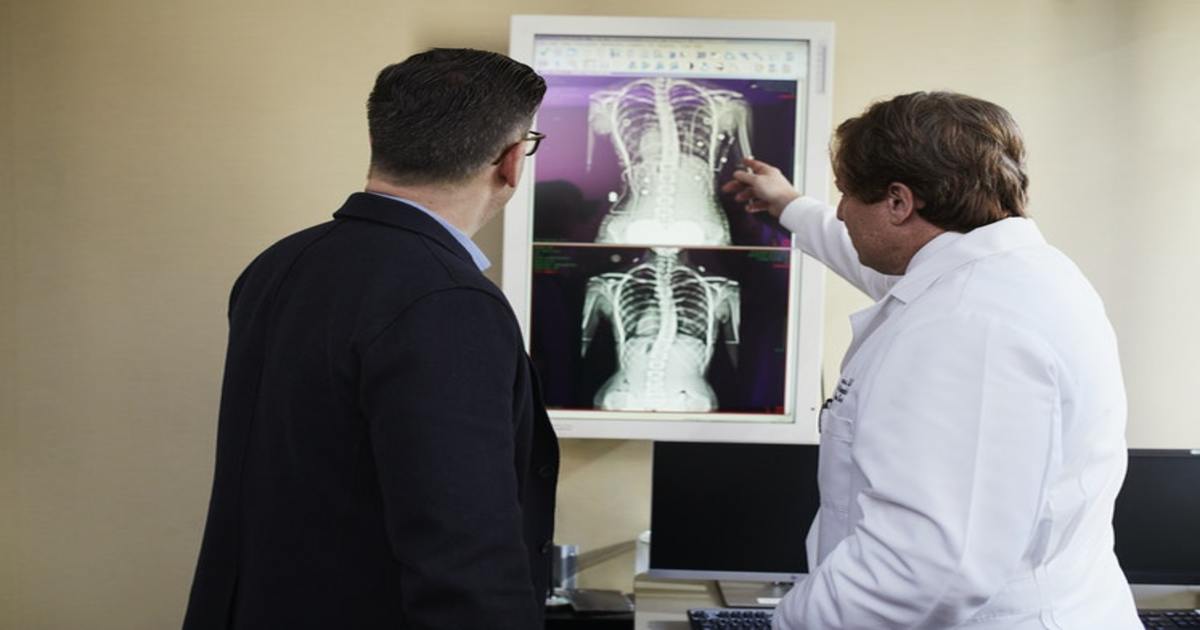
Health Technology, Digital Healthcare
Article | September 8, 2023
Yes, empathy has become a fad.
Connecting to another human is actually something cool kids do now. If a brand doesn’t have an impact model that includes a practical social issue, consumers tend to not take that brand seriously. In this case, empathy needs to be revisited beyond the trend itself for these strategies to have real, lasting impact.
Practical strategies around compassion meanwhile have similarly become an intrinsic part of social impact organisations. They have become so commonplace that prosocial behaviour has strayed into a kind of tokenism. It is common for instance for consumers to donate their hard-earned money to companies who focus their energies on trying to alleviate real-world issues.
The question then is whether this proxy for compassion isn’t in fact watering down human connections, as well as our positive impact on the issues business and organisations seek to solve with our help.
Postmodern behavioral science
If it is, then we must understand why and how to change that. This is where postmodern behavioral science provides a possible better alternative to social impact strategies. Postmodern behavioral science suggests that the current approach to understanding human behaviour lacks even a rudimentary understanding of empathy, defined in the area of social impact as a discursive strategy that allows us to feel what the group we are trying to help is feeling.
Of course, compassion has very close ties with empathy. Empathy is an innate ability we all have, one that we can learn to develop and fine-tune over time. It is our emotional connection to another human, though one that lies beyond our own ego. It takes the perspective of the person who is struggling and seeks to understand their life, their struggle, and their worldview. It also resolves to value and validate their perspective and experience — something that donating money to a social impact cause does not.
In its broader definition, empathy is a shared interpersonal experience which is implicated in many aspects of social cognition, notably prosocial behavior, morality, and the regulation of aggression.
Empathy has a host of positive after-effects when applied as an interpersonal experience. If a social impact organisation is preoccupied with raising capital, then it is likely to disregard the practical worth of empathy for those who truly want to achieve its mission.
Immersive empathy
One way that behavioral science can contribute is to utilise tools that can help augment the experience of those in need for those needing to understand those needs. Both AR and VR can help people visualise and follow the stories of those who require compassion. These create virtual environments for partners, governments, and consumers to experience with the people they seek to help.
But of course, much of human behaviour is geared toward seeking pleasant experiences and avoiding unnecessary pain. Our in-built hedonic valuation systems guide decisions towards and away from experiences according to our survival instincts.
This is precisely why business owners who want to encourage empathy in their customers go the easy route, but should seek a more participatory frameworks to inspire and provide experiences for those on board with a social mission.
Then there are issues like financial literacy in underserved populations, access to clean water, education for women and girls, and environmental conservation, to name a few of the problems that social impact companies are attempting to tackle.
If a company is trying to tackle an issue such as access to clean water, then rather than start there, it should first ask exactly how this issue arose and developed. It should question the beliefs that underpin this chronic social inequality, those that inform policies, practices, cultural taboos, and beliefs about water and people’s access to it.
To simply respond to an issue in its developed form is to leave it unfixed. We must be willing to reverse engineer the origins of that issue that got us to where we are. In other words, human behaviour is not the only component to consider in this.
The main behavioral framework public servants should take with them is to develop a nudge unit solely based on the relationship between behavioural science and technology.
This is mainly because technology is an inevitable part of how we now relate to one another. Immersive Compassion meanwhile should embrace tools like AR/VR that seek to create empathetic environments and valuable impact longevity.
To fully embrace empathy as an organisation is to create relevant and rigorous responses that go as far as to alter the infrastructure of its target goals. Optimising social impact comes down to optimising human experience.
Read More

Digital Healthcare
Article | November 29, 2023
As medical science has improved rapidly, life expectancy around the world also has risen. Still, as longevity increases, healthcare systems are facing a growing demand for advanced services, increased costs, and a struggling workforce to meet various requirements of patients. Demand is driven by many unstoppable forces: a shift in lifestyle choices, shifting patient expectations, population aging, and the never-ending cycle of innovation are a few among others.
Challenges Faced by the Healthcare Industry
According to Mckinsey, one in four people in North America and Europe will be over the age of 65 by 2050. This shows that, soon, the healthcare industry will have to deal with a larger number of patients with more complex requirements. Catering to these patients is expensive and requires health systems for providing long-term focused and proactive care. To remain sustainable, healthcare systems need major transformational and structural changes.
The industry also needs a larger workforce because according to the World Health Organization (WHO), globally there is a shortfall of approximately 9.9 million nurses, physicians, and midwives. Apart from attracting, training, and retaining these healthcare professionals, you also have to ensure that their time and effort add value to patient care. Utilizing the solutions powered by modern technologies, such as Artificial Intelligence (AI) in the healthcare industry, will add perfection and more value to human efforts.
AI in the healthcare industry has the potential required to transform and revolutionize healthcare by addressing the challenges in the industry mentioned earlier. AI can better the outcomes, improve efficiency, and augment productivity in healthcare delivery. This article takes an in-depth look at the impact of AI in healthcare.
Impact of AI in the Healthcare Industry
In the coming years, AI in the healthcare industry will improve the day-to-day life of healthcare practitioners, augment the patient experience, improve care delivery, and can even facilitate life-saving treatments and revolutionize the industry. Additionally, AI will improve population-health management, operations, and strengthen innovations.
According to Statista, the global AI healthcare market will increase to more than US$28 billion by 2025. Here is a detailed look into the areas where and how AI in the healthcare industry will be impactful.
Chronic Care Management
Chronic diseases, such as cancer, diabetes, kidney diseases, are the leading cause of disability and death in the US and the main drivers of the country’s annual health cost. Effectively managing various chronic diseases is an overarching and long-term process. But with the help of the right tool, healthcare providers can meet the needs of these patients without delay.
Artificial intelligence tools in the healthcare industry can help healthcare providers overcome the complexities of chronic disease management and make it more effective and provide quality treatment. AI in the healthcare industry is increasingly being leveraged by organizations to improve chronic disease management, enhance patient health, and drive down costs, which will also eventually result in data-driven and personalized care. AI in the healthcare industry is expected to move the industry toward proactive care delivery from a reactive one and lead the industry to provide more individualized treatments. This is just one of the ways AI in the medical industry is going to revolutionize chronic care management in hospitals.
Care Delivery
Artificial intelligence in the healthcare industry is changing the way care is delivered; it is expected to make healthcare more efficient, accurate, and accessible. Reducing costs and improving health outcomes are the values health systems and hospitals are trying to deliver to patients every day. Hospitals are increasingly incorporating technologies, which are powered by the use of AI in healthcare to meet the challenge.
According to the American Hospital Association (AHA), AI in the healthcare industry has unlimited potential to solve most of the vexing challenges in the industry. They identify AI use cases in the healthcare industry in four broad areas, which are administrative, operational, financial, and clinical areas.
Administrative Use Cases for AI in the Healthcare Industry
• Admission procedures
• Appointment scheduling
• Customer service responses
• Discharge instructions
• Hiring and orientation protocols
• Licensure verification
• Patient check-in procedure
• Prior authorizations
• Quality measure reporting
Operational Use Cases of AI in the Healthcare Industry
• Inventory management
• Materials management
• Supply chain management
• Facilities management
Financial Use Cases for AI in the Healthcare Industry
• Billing and collections
• Claims management
• Insurance eligibility verification
• Revenue cycle management
Clinical Use Cases of AI in the Healthcare Industry
• Predictive technologies
• Interventional technologies
By incorporating and utilizing these scopes with AI in the healthcare industry, the industry can be transformed into a next-gen level in no time. It also allows healthcare practitioners to focus more on patients, which would eventually help in raising staff morale and improving retention.
Clinical Decision Support
Recent advancements in AI in the health industry are capable of enhancing the currently used clinical decision support (CDS) tools to have value-based imaging and to improve patient safety. According to the National Institute of Health (NIH), the synergy between CDS systems and AI in the healthcare industry will be able to:
• Reduce friction in radiology workflows
• Identify relevant imaging features easily
• Generate structured data to develop machine learning algorithms
• Enable an evolution toward decision support for a holistic patient perspective
• Suggest imaging examinations in complex clinical scenarios
• Assist in identifying appropriate imaging opportunities
• Suggest appropriate individualized screening
• Aid health practitioners to ensure continuity of care
AI in the healthcare industry is competent in making CDS a next-gen one, enhancing the experiences of radiologists and providers, and improving patient care.
Diagnostics
Slowly but surely, AI is improving almost every aspect of human life with innovations and advancements. The latest is that AI in the healthcare industry is impending a revolution in medical diagnostics by providing accurate risk assessments, accelerating disease detection, and boosting hospital productivity. By automatically prioritizing urgent cases and accelerating reading time, image recognition AI enhances the workflow of radiologists. It even helps in the prevention of diseases by the early detection of diseases.
In medical images such as x-rays, MRIs, and CT scans, AI-driven software can efficiently be used to accurately spot signs of many diseases, especially in detecting many chronic diseases such as cancer. According to the NIH, AI will be widely applied in the healthcare industry especially for various tasks such as patient engagement and adherence, diagnosis, and treatment recommendations. So, there is no doubt that AI in healthcare will revolutionize the diagnostic process in the approaching years by detecting diseases, classifying diseases, and improving the decision-making process. The application of AI in the healthcare industry will make people live longer.
Triage and Diagnosis
AI can be effectively used to automatically triage cases. AI algorithms will analyze the cases and forward cases to pathologists after determining the priority based on the probability of cases according to the criteria set by labs. This makes the workflow of pathologists easier and efficient. Through the process the algorithm will be able to:
• Verify the digital images attached to the case belong to that case
• Validate the tests ordered and match the specimen type
• Identify cases marked as stat
• Determine the cases, which can be positive or are most likely to be negative
Moreover, AI technologies in the healthcare industry also can be effectively used to provide more accurate and faster diagnoses. This speeds up the entire process of triage and diagnosis and is expected to revolutionize the healthcare industry soon.
The Future Outlook for AI in the Healthcare Industry
Over the next few years, AI in the healthcare industry has the best opportunities in hybrid models to support clinicians in diagnosis, identifying risk factors, and in treatment planning. This scope will result in faster adoption of AI technology in healthcare, which will show measurable improvements in operational efficiency and patient outcomes.
With a plethora of issues to overcome, which are driven by documented factors such as growing rates of chronic diseases and the aging population, it is obvious that the healthcare industry needs new innovative solutions. AI-powered solutions in the healthcare industry will achieve a clear impact on the global healthcare industry in a short time.
Frequently Asked Questions
Which is the best application of AI in the healthcare sector?
Cognitive surgical robotics is the best application of AI in the healthcare sector as it helps practitioners collect data from real surgical processes, which would help in improving existing surgical approaches.
Why is artificial intelligence important in healthcare?
Artificial intelligence in healthcare is vital as it can help make decisions, analyze and manage data, and have conversations. So, AI will drastically change the everyday practices and roles of clinicians.
When was AI-first used in healthcare?
The term, Artificial intelligence (AI) was first described in 1950, but the limitations of the term prevented its acceptance. In the 2000s, these limitations were overcome and people started to accept the term.
Read More

Health Technology, Digital Healthcare
Article | August 21, 2023
The healthcare industry is experiencing rapid shifts. Some of this is due to the current pandemic, but much of this evolution was happening even before the COVID-19 outbreak. Understanding and embracing the introduction of new technology into the market will be important for healthcare professionals and patients alike. Here are some of the trends worth keeping tabs on:
Read More

Article | May 24, 2021
While many United States healthcare providers are returning to their in-person offices, many others are digging in to offer hybrid telehealth or exclusive telehealth practices moving forward. Understanding the future of telehealth reimbursement is then a pivotal issue. As a hub for telehealth consultants and trainers, the Telebehavioral Health Institute (TBHI) is receiving daily requests for assistance from behavioral health groups and independent practitioners seeking to position themselves for telehealth expansion optimally.
Read More